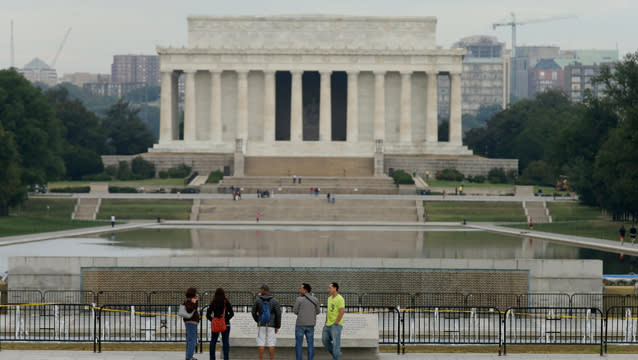Here’s How to Avoid a Debt Ceiling Disaster: Norm Ornstein

Norm Ornstein is no radical. He's a resident scholar at the conservative-leaning American Enterprise Institute, the co-director of the AEI-Brookings Election Reform Project and one of the creators of the McCain-Feingold campaign finance law. He considers himself a centrist.
But the co-author of "It's Even Worse Than It Looks: How the American Constitutional System Collided With the New Politics of Extremism"
tells The Daily Ticker that the current situation in the Capitol is "even worse that it was" when the book was published in 2012. And he says he's worried his next book may have to be called "Run for Your Lives."
Related: Shutdown: GOP Extremists Are Hijacking the Government, Says Blodget
Joking aside, Ornstein says even though "there are no angels" in Washington these days, the "polarization is asymmetric," driven by a small group of Republicans that are "more radical than...conservative."
Related: Republicans Should 'Take Hostages' Over Debt Ceiling; U.S. Won't Default, Says Stockman
He describes the impasse in Washington like this: "Imagine that a labor union and management are going into standard negotiations over wages and benefits and work conditions. There's always the threat of a strike but it's usually an impetus to a deal. Now imagine that the union says if you don't give us what we want 'We're going to blow up the plant' and they mean it. Would you negotiate under those circumstances? I think not..."
Related: Here's How to Bypass the Debt Limit
Despite his view of the Washington stalemate, Ornstein says there is a way for the government to avoid default if there's no broad debt limit agreement in Congress. First, he sees a "very short-term extension" of the debt limit for a week or two.
Then, he says, the "McConnell Rule" named after Senate Minority Leader Mitch McConnell (R-KY) who introduced the idea in 2011, would be used to take the debt ceiling debate off the table permanently.
Related: Debt Ceiling Debate: Does Wall Street Believe the U.S. Could Default?
Here's how the McConnell Rule would work, according to Orstein: The president raises the debt ceiling; Congress votes a resolution of disapproval; the president vetoes that resolution, which requires a 2/3 vote to overturn and is unlikely to happen.
"If you made that permanent in law, then it seems to me you can really make some concessions whether they are on minor pieces of the Affordable Care Act like the tax on medical devices...or even some things related to the budget," says Ornstein. "Then you could end up with something that becomes a win for the American people looking to the future and not a loss/loss for the political actors."
Maybe Ornstein is, above all, an optimist. Watch the video above. You decide.
Tell Us What You Think!
Send an email to: [email protected].
You can also look us up on Twitter and Facebook.
More from The Daily Ticker
Jimmy Choo Co-Founder Changing the Fashion Industry Again